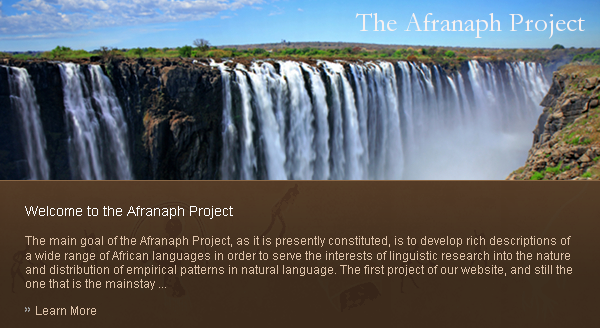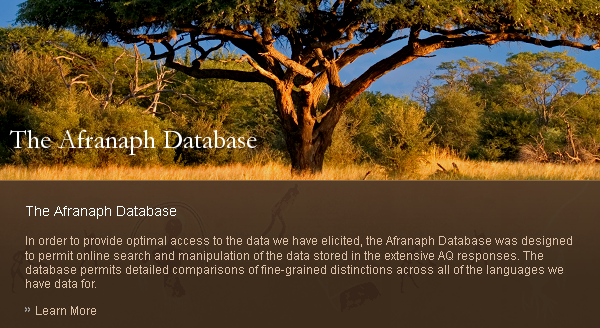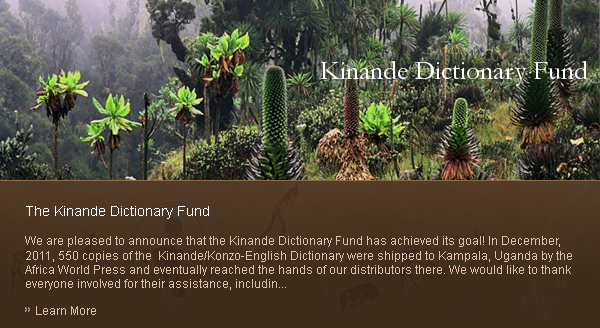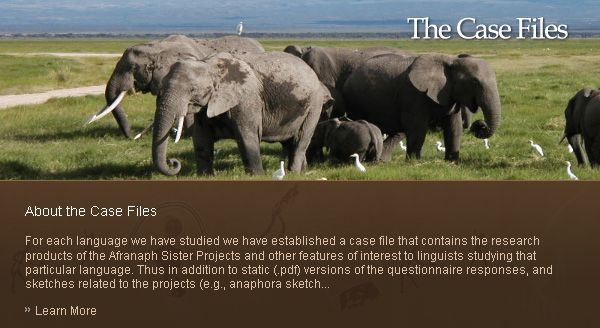![]()
This website was initiated with support of NSF grants BCS 0303447, BCS 0523102, BCS 0919086 and is currently supported by NSF BCS 1324404, Ken Safir, Principal Investigator
The main goal of the Afranaph Project, as it is presently constituted, is to develop rich descriptions of a wide range of African languages in order to serve the interests of linguistic research into the nature and distribution of empirical patterns in natural language. The first project of our website, and still the one that is the mainstay of our research, has been to explore the distribution of anaphoric morphology and interpretation, but recent initiatives to expand the role of our empirical investigations to other sorts of linguistic phenomena have resulted in sister projects, autonomous, but linked to Afranaph in spirit, by infrastructure, and with respect to a common database (see Afranaph Sisters). The latest stage of our funding is for the expansion of our sister projects and to develop new ones, while integrating access to all the data collected by the sister projects, both language internally and crosslinguistically.
Although our project is informed specifically by the research goals of generative grammar, it is our intention to make the data we collect as accessible as possible to any linguist with an interest in these languages or more general issues in cross-linguistic comparison. The data we present is collected on the basis of complex and comprehensive questionnaires that are to be filled out by native speaker linguist consultants, and are designed to elicit data that can bear on research questions of interest to a particular Afranaph Sister Project. Subsequent follow-up work between the consultants and project investigators explores interesting details and patterns that appear to be comparatively or theoretically significant. This project has become more feasible at this point in history not only because there are an unprecedented number of trained African linguists who are potential participants in our project, but also because the resources of the web and the internet make it possible for more efficient remote participation.
More on the organization of our site





